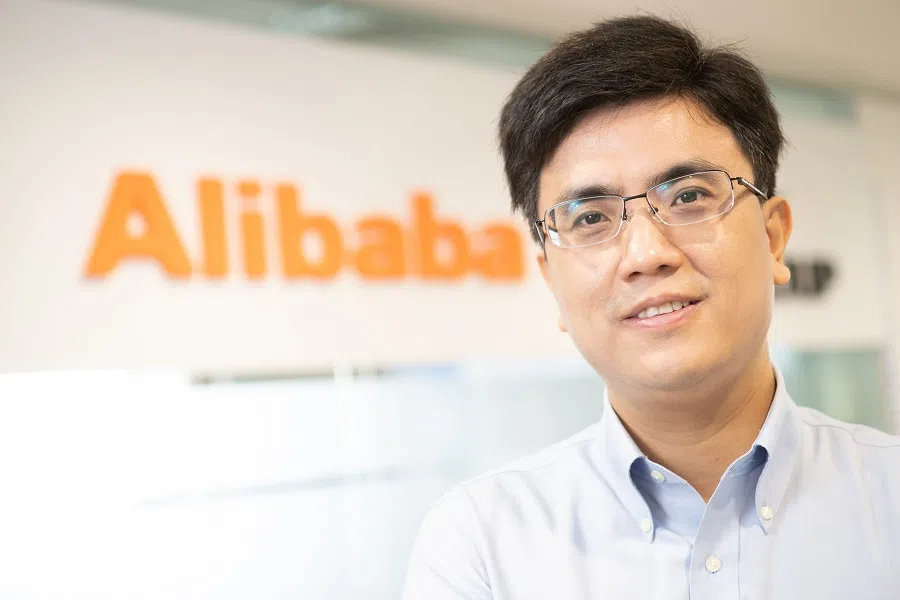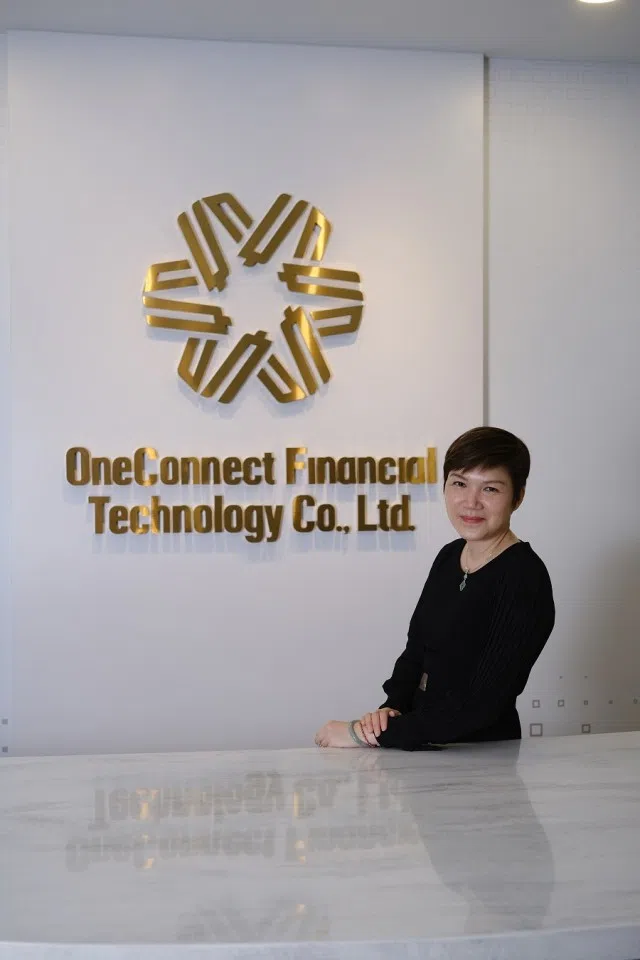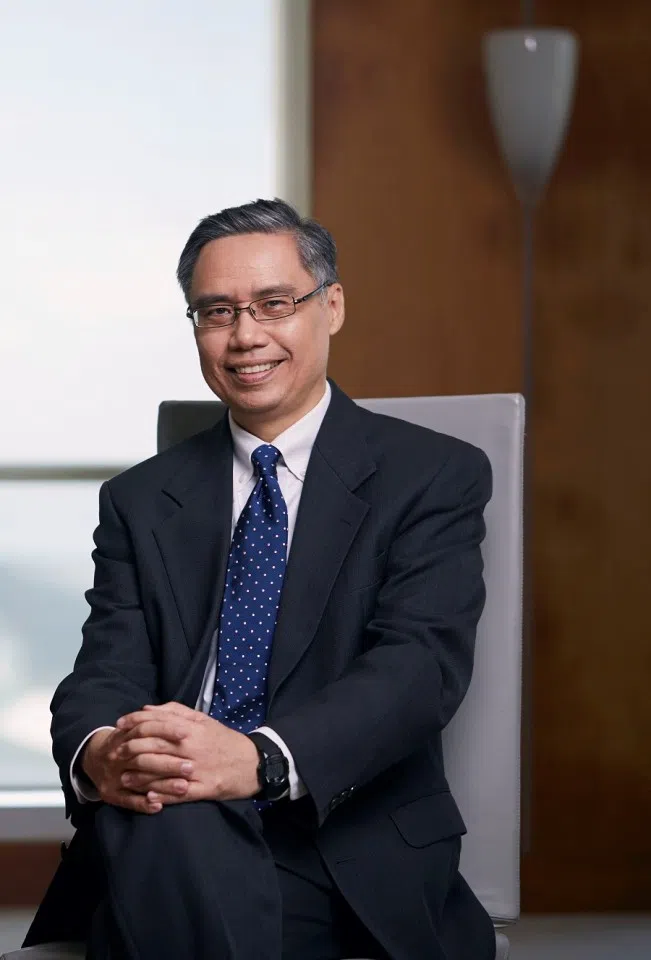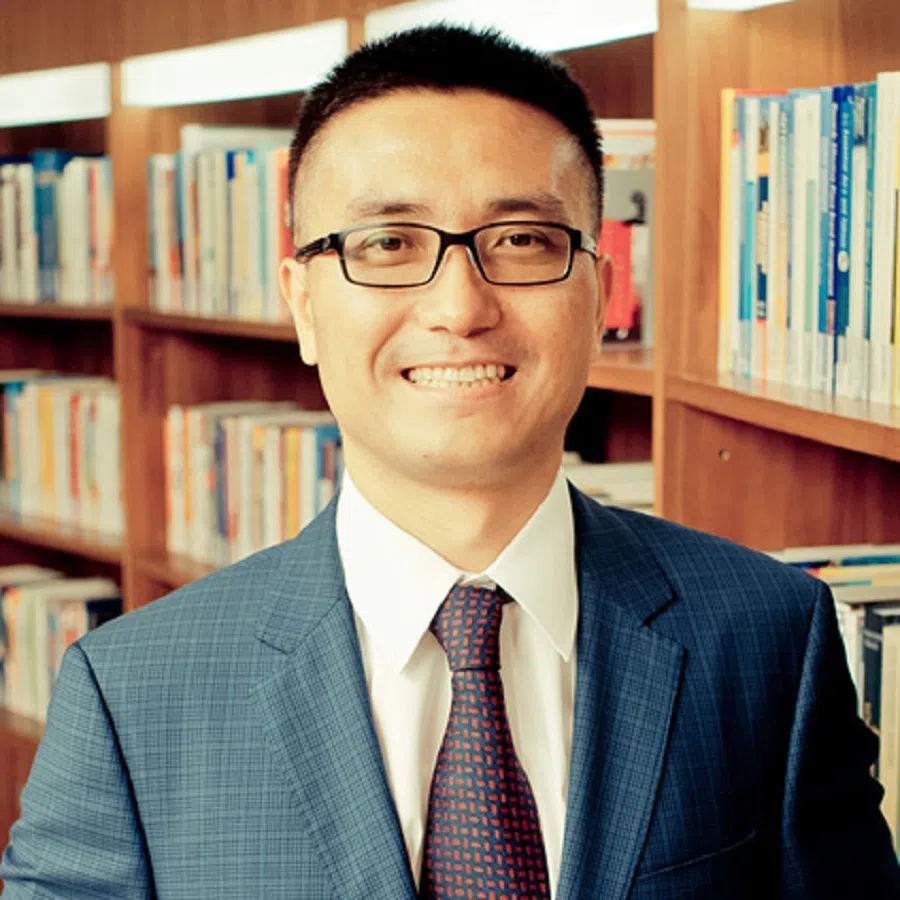Singapore a popular base for China tech firms
In recent years, China's tech giants such as Alibaba, Tencent and ByteDance have set up regional offices in Singapore. With insights from industry experts, Zaobao senior business correspondent Chew Boon Leong analyses the impact that an influx of Chinese tech companies will have on Singapore. Will it affect Singapore's neutral stance and lead the nation to become a battleground for tech companies from the US and China?

Four years ago, when Derek Wang, general manager of Alibaba Cloud arrived in Singapore, he was among the company's first employees to be posted overseas, and only one of a handful of top executives from a China tech company to be posted here.
But these days, he meets more and more of his industry peers from China here.
"I think it has become a trend for China tech companies to head overseas," said Dr Wang, in an interview with Lianhe Zaobao. "They are all heading to Singapore and Southeast Asia, and expanding is always a good thing."
According to data from Singapore's Economic Development Board, more than 80 of the world's top 100 software and services companies have a presence in Singapore. These include the likes of China tech giants Alibaba, Tencent, and ByteDance, the parent firm of video-sharing app TikTok.

A subsidiary of the Alibaba Group, Alibaba Cloud provides cloud-based services such as cloud computing, cloud servers, and artificial intelligence solutions. The company established its regional headquarters (RHQ) in Singapore in 2015. Dr Wang moved here from Alibaba's headquarters in Hangzhou, China in 2017. Two years later, he was appointed general manager of Alibaba Cloud and tasked to develop new markets for the rest of Southeast Asia.
But Alibaba Group started investing in Singapore even before the establishment of Alibaba Cloud's RHQ. Back in 2014, it acquired a 10.35% stake in mainboard-listed SingPost for S$312.5 million. The stake was later raised to 14.4%, making it the second largest shareholder in SingPost.
In 2016, Alibaba Group acquired Singapore-based Lazada for US$1 billion. Two years later, it pumped a further US$2 billion into the e-commerce platform. In May last year, Alibaba acquired a 50% stake in AXA Tower in Singapore for S$840 million.

In the case of Tencent, it announced plans to set up a Singapore office in September last year. The outfit is to support the growth of its business in Southeast Asia. With office space at OCBC Centre East large enough to accommodate 200 employees, it has hired some 90 people locally - including data scientists, software engineers and product managers. As for ByteDance, the company is planning to invest "several billions of dollars" in Singapore over the next three years, and hire hundreds of employees for its RHQ in Singapore.
Ping An Insurance too, has picked Singapore as a springboard to go global. The company first established its online wealth management platform Lu-Global in Singapore in 2017. The following year, its fintech subsidiary OneConnect launched its regional headquarters here as well. In 2019, Ping An Good Doctor formed a joint venture with homegrown tech firm Grab to offer online healthcare services in Southeast Asia.
Other China tech companies with a presence in Singapore include Trip.com, iQiyi, Huawei Cloud, Yitu, Pensees, Tongdun Technology, Yoozoo, and Envision Group.
"The pool of talent we have in Singapore is good, and these people know Southeast Asia, they speak Mandarin... They can blend into Chinese corporate culture and play a key role in expanding the business." - Tan Bin Ru, CEO of OneConnect Financial Technology
Why are China tech companies flocking to Singapore?
Tan Bin Ru, CEO of OneConnect Financial Technology, said that Ping An was drawn to Singapore's stable business climate, excellent Internet infrastructure, and market access to a population of 600 million people residing in ASEAN. The availability of technology talent in Singapore is another plus.
Talent availability
"Singapore is an obvious choice for OneConnect because we can find good talent here," she said. "Being a tech company, we need hardware, we need scale, but more importantly, we need talent. If there is no tech talent to innovate, the company's business will not thrive.

"The pool of talent we have in Singapore is good, and these people know Southeast Asia, they speak Mandarin... They can blend into Chinese corporate culture and play a key role in expanding the business."
Wang Yanbo, assistant professor of strategy and policy at the NUS Business School, said that many China tech companies are reaching a growth bottleneck in their home country and urgently need to seek new growth areas.
"China has the largest number of Internet users in the world, but the rate of growth is slowing," he said. "Southeast Asia, on the other hand, has a lower rate of Internet penetration, and digitalisation is still at a nascent stage (with the exception of Singapore). Many China tech companies feel that their technology and business models can be replicated in Southeast Asia, and because of Singapore's strategic location, they naturally would pick the country as their first destination for going global."
China tech companies also see a rising need to separate their domestic business from their overseas business, driven by the US-China trade tensions and the decoupling of the tech sectors of both countries, said Toru Yoshikawa, professor of strategic management at the Lee Kong Chian School of Business of Singapore Management University. There is a desire among them to build a more globalised image, based on exemplary corporate behaviour.

Regarded as the "Switzerland of Asia", Singapore offers a sound legal framework and robust protection for intellectual property rights, in addition to maintaining a neutral position in the tussle between China and the US, added Professor Yoshikawa. Establishing their regional headquarters in Singapore could help China tech firms build global recognition and minimise biases associated with Chinese corporations, thereby boosting their efforts to go global.
Benefits and challenges
According to Suan Teck Kin, head of global economics and markets research at UOB, in addition to tax contribution and job creation, the rising inflow of China technology companies enhances Singapore's position as a hub for tech enterprises, and as a draw for more foreign investment.
A report by the United Overseas Bank (UOB), PwC and the Singapore FinTech Association says that 65% of the fintech funding in Southeast Asia flowed to Singapore between 2015 and 2019. The total value amounted to some US$2.498 billion, putting the country ahead of Indonesia, the Philippines and Thailand.
"Local businesses, through working with tech companies from China, can produce a positive ripple effect, boosting exchange and development in the tech ecosystem," said Mr Suan.

As an example, he said, China tech firms own many cutting-edge technologies in artificial intelligence, big data, fintech and other sectors. Through partnerships, local businesses can raise their own capability and catalyse more creative solutions, bringing about more opportunities for growth.
A spokesperson from Alibaba said that since forming a Singapore connection, the group has been supportive of the development of Singapore's business ecosystem. For instance, Alibaba launched Project Sprout Up in June last year to provide a platform for local businesses to access more business-to-business (B2B) buyers globally. Alibaba's Tmall platform also provided assistance in digital transformation to small and medium-sized enterprises.
While investments by Chinese tech firms have brought economic benefits, they have also led to some negative impact.
"The short-run impact on Singapore could be mixed, such as inflated rentals and real estate prices," said Assistant Professor Wang. "Local firms may also feel the pressure to raise salaries and bonuses of their top-calibre employees."
The global tech talent shortage is expected to hit 4.3 million people by 2030, said a report by Korn Ferry. And if the financial and business services sectors in Singapore fail to address the talent gap, it could miss out on US$29.2 billion worth of economic growth.

Ms Tan added that the tech talent crunch is part of a global trend that is not limited to local companies; companies from China face the same challenge.
Like many others in the tech sector experiencing a pandemic-fuelled demand growth last year, OneConnect's ability to meet that surge in demand was clipped by a talent shortage. "Last year, there was a wave of Chinese tech companies that decided to set up shop here," she said. "These companies help to make the local tech sector more vibrant and robust. But at the same time, it causes a huge spike in staff cost. Many tech talents' salaries were at least doubled, some were being poached... So we do need to fill this tech talent gap immediately in order to satisfy tech companies' rising demand for talent."
The global tech talent shortage is expected to hit 4.3 million people by 2030, said a report by Korn Ferry. And if the financial and business services sectors in Singapore fail to address the talent gap, it could miss out on US$29.2 billion worth of economic growth. To help develop more tech talent in Singapore, OneConnect in 2018 partnered SIM Global Education to set up the Ping An Academy, where students will be offered a one-year course in fintech.
Dr Wang and Ms Tan pointed out that the pandemic had accelerated the pace of digitalisation. Since the start of the outbreak, their employees have become busier, and businesses have expanded. They will continue to explore opportunities thrown up by digitalisation.
Borderless digital world?
Professor Yoshikawa also felt that in spite of the Chinese government's push to prioritise domestic consumption, the companies will continue to head for Singapore.
"Not only do Chinese tech companies need to consider their current development, but also to look at the longer-term plan in the next five or 10 years," he said. "They may have accelerated their expansion in their domestic market but at the end of day, they must go overseas and become a global company. This is a far-sighted approach and also an inevitable path."

In the midst of geopolitical uncertainty, Singapore has remained neutral, maintaining good relations with China and many countries in the West. But will the influx of tech companies from China have an impact on Singapore's neutral stance, or will it lead to the nation becoming a battleground between tech companies from the US and China?
Assistant Professor Wang said it is becoming increasingly difficult for Singapore to remain impartial. "Purely from the tech perspective, China and the US may have different technical standards; and this is an 'either with me or against me' situation - which will make it hard for Singapore businesses to operate in a neutral environment."
Mr Suan, however, said Singapore has always attracted international companies - from Europe, the US, Japan, South Korea and Southeast Asia - but this has never affected the country's neutrality. Instead, it has made Singapore an attractive spot for global enterprises to congregate.
He added: "From a pragmatic point of view, Chinese or American tech companies are focused on commercial activities; as long as they are not a threat to Singapore's national interest or security, we have no reason to turn them away."
Dr Wang said technology itself is borderless, and the US-China tech war would not detract from the tech itself: "Alibaba Cloud is a tech company, we are focused on using technology to serve our corporate clients and using digital means to help companies transform and upgrade, and create value for them."


![[Big read] When the Arctic opens, what happens to Singapore?](https://cassette.sphdigital.com.sg/image/thinkchina/da65edebca34645c711c55e83e9877109b3c53847ebb1305573974651df1d13a)


![[Video] George Yeo: America’s deep pain — and why China won’t colonise](https://cassette.sphdigital.com.sg/image/thinkchina/15083e45d96c12390bdea6af2daf19fd9fcd875aa44a0f92796f34e3dad561cc)